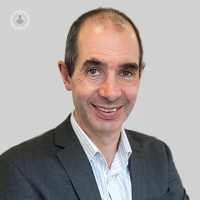What should I know about a colorectal cancer screening?
Written in association with:There are many ways to screen for colorectal cancer but all methods have the same aim, which is to reduce deaths from this disease. Colon cancer develops from non-cancerous growths (polyps) in the colon that may be present for up to 10 years before turning into cancer.
Often these growths do not cause any symptoms and so some screening tests aim to detect these polyps and remove them before they progress to cancer. In this way, colorectal cancer can be prevented. Other screening modalities aim to detect cancer before it causes symptoms, so it is detected at an earlier stage and treatment is more likely to be curative.

Why should I have a screening?
Colorectal cancer is the second commonest cause of cancer deaths in the UK, affecting 1 in 18 men and 1 in 20 women but the disease is entirely preventable by the detection and removal of polyps. In addition, if the disease is identified at an early stage then treatment is often curative. As polyps and early cancers often do not cause symptoms the only way of detecting them is by screening. If screening is not performed and the cancer is diagnosed when symptoms develop, it is more likely to be at an advanced stage when treatment is significantly less effective.
When should I begin to get screened?
Most importantly you must see your doctor if you develop any symptoms suggestive of bowel cancer. The most common would be visiting the toilet more often, passing looser stools or passing blood in your stool. Screening only applies to people with an average risk of developing colon cancer, so if you have a family history of colon cancer, previous polyps or colon cancer, or have diseases such as ulcerative colitis or Crohn’s disease, then more aggressive surveillance will be needed. In the absence of these conditions, screening should start at the age of 45 years.
What happens during a screening?
There are a variety of modalities available. The most reliable is a colonoscopy, which involves passing a flexible tube around the colon after taking a laxative to clear the bowel. This test allows removal of polyps and biopsies to be taken of any cancer identified. There are alternative tests available, such as a limited bowel examination (Flexible Sigmoidoscopy), CT scanning or testing for blood in the stool. These tests, however, are less sensitive than colonoscopy but may be more appropriate for some people.
How long does it take to get my test results?
A colonoscopy will exclude the presence of cancer at the examination, so the result is available immediately. If polyps are removed then these will be analysed and the results may take a few days. In the majority of cases these polyps are non-cancerous, but in a small minority they may contain a focus of cancer and further treatment may be necessary.


